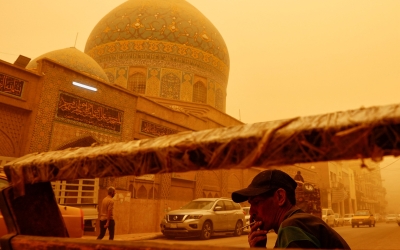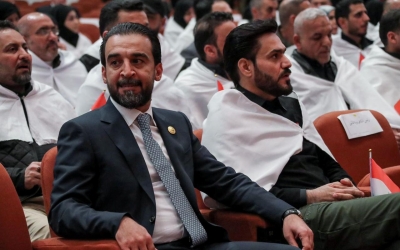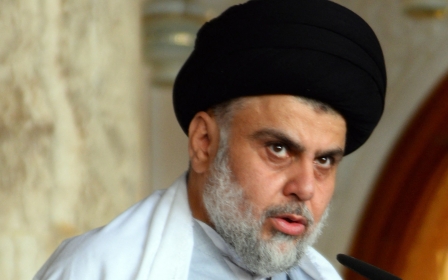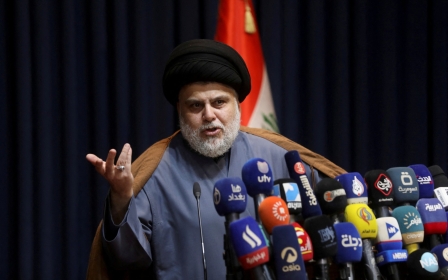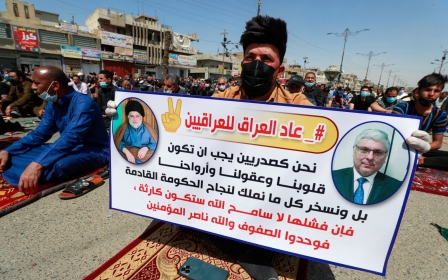Iraqi MPs from cleric Muqtada al-Sadr's bloc resign from parliament
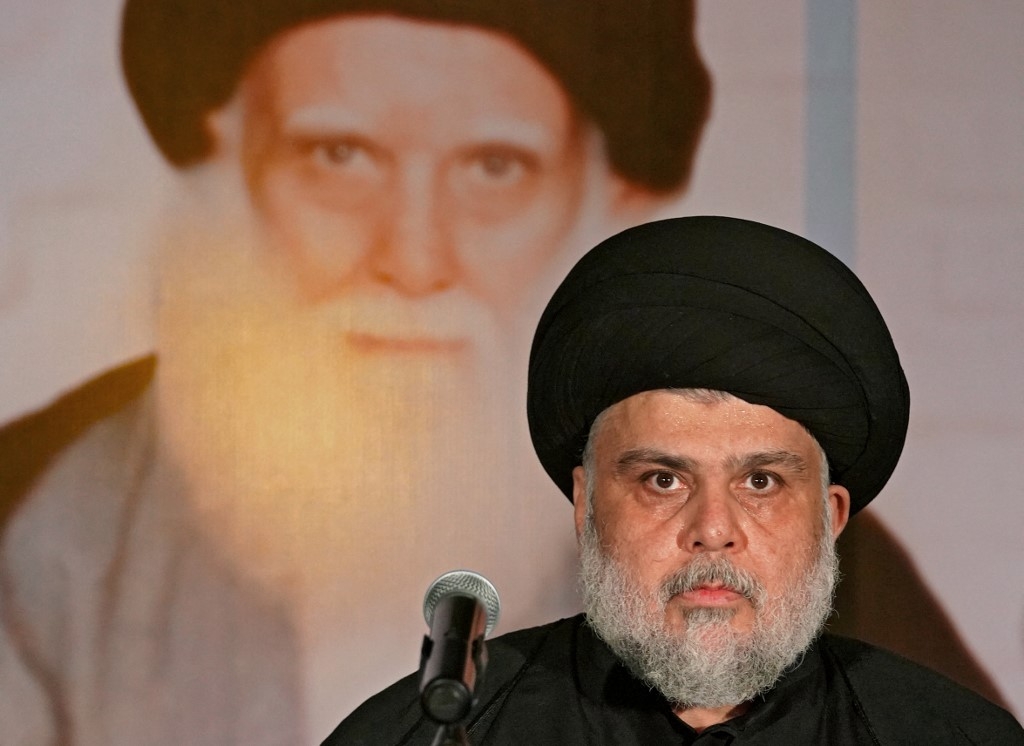
Iraqi lawmakers from firebrand Shia cleric Muqtada al-Sadr's bloc resigned on Sunday, the parliamentary speaker said, a move ostensibly designed to end eight months of political paralysis.
"We have reluctantly accepted the requests of our brothers and sisters, representatives of the Sadr bloc, to resign," parliament's speaker Mohammed al-Halbousi said on Twitter after receiving resignation letters from the 73 lawmakers.
Sadr, a populist who has positioned himself as a staunch opponent of both Iran and the United States, said in a handwritten statement that his request to lawmakers to resign was "a sacrifice from me for the country and the people to rid them of the unknown destiny", according to Reuters.
Soon after, the parliamentary speaker accepted the resignations.
Sadr on Thursday had urged the MPs from his bloc to ready resignation papers in a bid, he said, to break the parliamentary logjam and create space for the establishment of a new government.
Sadr's party was the biggest winner in an October general election, increasing the number of seats it holds in parliament to 73.
But parliament in Baghdad has been in turmoil since the election, and intense negotiations among political factions have failed to forge a majority in support of a new prime minister to succeed Mustafa al-Kadhimi.
Iraqi lawmakers have already exceeded all deadlines for setting up a new government set down in the constitution, prolonging the war-scarred country's political crisis.
Constitutional implications
Parliamentary services were not available on Sunday evening for comment on the constitutional implications of the Sadr bloc's move, according to AFP.
But Iraqi political scientist Hamzeh Haddad said that "parliament still needs to ratify" the resignations "with an absolute majority" for them to take effect.
Parliamentary holidays began on Thursday and MPs are not scheduled to return until August.
'Sadr reached the point that he accepted the bitter reality that it's nearly impossible to form a government away from the Iranian-backed groups'
- Ali Moussawi, former Shia lawmaker
The two Shia groupings - the coalition led by Sadr, and its powerful rival, the Coordination Framework - have each claimed to hold a parliamentary majority, and with it the right to appoint the prime minister.
While Sadr counts on the direct loyalty of 73 lawmakers, his wider bloc also includes Sunni lawmakers from the party of Halbousi and the Kurdistan Democratic Party (KDP).
But the grand total of Sadr's bloc of 155 still falls short of the absolute majority needed in the 329-member parliament.
Sunday's move puts the onus for forming a government on the 83 lawmakers of the Coordination Framework, which draws lawmakers from former premier Nouri al-Maliki's party and the pro-Iran Fatah Alliance, the political arm of the Shia-led former paramilitary group Hashd al-Shaabi.
Sadr's victory had raised the possibility that he could sideline his Iranian-backed rivals who had dominated politics in Iraq for years.
"Sadr reached the point that he accepted the bitter reality that it's nearly impossible to form a government away from the Iranian-backed groups," said Ali Moussawi, a former Shia lawmaker and a political researcher at Baghdad University.
Even though his withdrawal is a setback, Sadr, whose supporters fought US occupation forces, still has firepower with hundreds of thousands of followers who can stage protests, Moussawi added.
Challenges
Any new Iraqi government will face myriad challenges.
The United Nations says about one-third of Iraq's 41 million population now lives in poverty.
State institutions have been weakened by decades of war, and corruption plagues all levels of the Iraqi state.
Official figures published last year estimated that well over $400bn had gone missing from state coffers in the near two decades since dictator Saddam Hussein was toppled in 2003.
And despite its immense oil and gas reserves, Iraq remains dependent on imports to meet energy needs, with neighbouring Iran providing a third of Iraq's gas and electricity needs.
Major anti-government protests in late 2019 were spurred in large part by anger over corruption and the related dilapidation of public services.
Lawmakers have already failed three times to elect a new national president, the first key stage before naming a prime minister and the subsequent establishment of a government.
If the parliamentary impasse cannot be broken, new elections could follow - but that would itself require lawmakers to agree on dissolving parliament.
The UN envoy to Iraq, Jeanine Hennis-Plasschaert, last month urged Iraqi politicians to end the deadlock, warning that "the streets are about to boil over".
Middle East Eye delivers independent and unrivalled coverage and analysis of the Middle East, North Africa and beyond. To learn more about republishing this content and the associated fees, please fill out this form. More about MEE can be found here.


